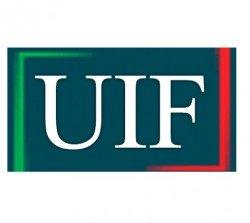During times of economic crisis, access to credit is critical for healthy but vulnerable businesses...
In times of economic crisis, guaranteeing access to healthy but vulnerable businesses is essential to prevent them from becoming targets of organized crime.This comes from a study by the UIF (financial unit for Italy), which is in the anti-money laundering note No.32 that cannot be denied: The flow of credit and organized crime development ".
Il testo, a cura di Gianmarco Daniele, Marco De Simoni, Domenico J. Marchetti, Giovanna Marcolongo e Paolo Pinotti, analizza uno dei meccanismi cruciali dell’interazione tra economia legale e criminalità organizzata, focalizzandosi sull’infiltrazione mafiosa nelle imprese in condizioni di fragilità finanziaria. E mostra che le restrizioni al credito aumentano in modo significativo il rischio di infiltrazione della criminalità organizzata nelle imprese.
Using a large database covering the world of Italian companies from 2001-2000, this study provides information on bank loans with credit ratings and confidential information from the Department of Financial Information. In particular, the analysis uses data from the experimental mapping of companies operating in Italy developed in recent years in the UIF.
Infilit lapse is alive
The authors show how restrictions in the conditions of access to bank credit can considerably increase the risk that a company is subsequently infiltrated by criminal organizations.The determining factor at the center of the analysis is the decline in solvency, that is to say the transition of the company from a state of financial vulnerability to a situation of risk of insolvency, measured by the Cerved rating.
This event leads to a significant reduction in the availability of credit: the results show that in the 5 years after this downgrade, bank credit is reduced by more than 30%, and the probability of penetration increases by 5% compared to similar companies that have not been downgraded.
This law is proposed valid when the law is valid, when the banks stop providing the criminal conditions: when the banks stop providing the financial oil for business, the banking business, Mafia institutions may interfere more necessary.The "zombie" companies are known to be "non -competitive" companies in healthy markets, but it is the free capital I have for free thanks.
"This phenomenon distorts the natural distribution mechanisms of the market, punishing healthy companies and favoring those that work against criminal interests, negatively impacting competition, productivity and trust in institutions," specifies the analysis.
Construction and real estate services are the industries most at risk
The effect of financial vulnerability on penetration risk is stronger in larger companies and in some sectors with high money laundering risk, such as construction and real estate services. In particular, in the real estate sector, the increase in the probability of penetration after a credit cut reaches 10%, twice the general average.
With respect to large corporations, the particular interest of criminal organizations may also reflect the "relational" advantages associated with companies in terms of visibility and communication networks, which may contribute to greater growth of criminal groups' activities and profits.
In general, the link between financial incapacity and future involvement in crime is also confirmed by the results of various anti-mafia studies, especially in northern Italy.
The findings of this study have many implications.In times of economic crisis, it is important to ensure access to credit to healthy but vulnerable businesses, to prevent them from becoming targets of organized crime.Financial transparency and monitoring of changes in ownership and management also need to be strengthened, including policies to combat economic crime with predictive analytics and system monitoring tools.In a context where the mafia seeks to expand its influence through the legal economy, preventing infiltration also involves the ability to support companies in distress and quickly stop danger signals, thanks to sophisticated analytical tools.








